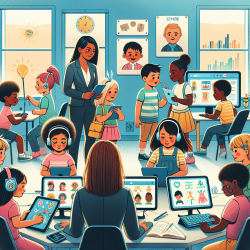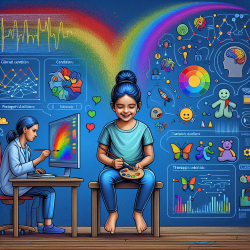Welcome to the Future of Therapy: Virtual Solutions for Schools
In the rapidly evolving landscape of education, mental health professionals working in schools often find themselves feeling lost amidst the myriad of challenges. The advent of virtual therapy, however, offers a beacon of hope. Online therapy services are not just a temporary solution but a transformative approach that promises to redefine how we deliver mental health support to children.
The Rise of Virtual Therapy
Virtual therapy has seen a significant rise in recent years, driven by the need for accessible and effective mental health services. According to a 2022 study by the American Psychological Association, the use of telehealth services increased by over 50% in educational settings. This shift is not just a response to necessity but an evolution towards more inclusive and flexible mental health care.
Why Virtual Therapy Works
Data-driven decisions are crucial in understanding the efficacy of virtual therapy. Here are some compelling reasons why virtual therapy is making waves in schools:
- Accessibility: Virtual therapy eliminates geographical barriers, allowing children in remote or underserved areas to access high-quality mental health support.
- Flexibility: Online sessions can be scheduled at convenient times, reducing disruptions to the school day and accommodating diverse schedules.
- Comfort: Children often feel more at ease in familiar environments, such as their homes, which can enhance the therapeutic process.
Implementing Online Therapy Services in Schools
For mental health professionals, integrating online therapy services into schools requires careful planning and collaboration. Here are some steps to consider:
- Assess Needs: Conduct a thorough assessment of the school's mental health needs and resources to determine how virtual therapy can be integrated effectively.
- Training and Support: Provide training for staff and educators on the use of online platforms and the nuances of virtual communication.
- Engage Stakeholders: Involve parents, teachers, and administrators in the planning process to ensure a cohesive and supportive environment.
Data-Driven Outcomes
Research consistently shows positive outcomes for children receiving virtual therapy. A 2023 study published in the Journal of School Psychology found that students who participated in online therapy sessions demonstrated significant improvements in emotional regulation and academic performance.
Conclusion
For mental health professionals in schools, embracing virtual therapy is not just about adapting to change; it's about leading it. By leveraging online therapy services, we can create informed, data-driven solutions that cater to the diverse needs of children, ensuring they receive the support they need to thrive.










